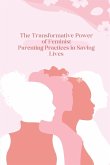As the largest Muslim majority nation and third largest democracy in the world, Indonesia has a remarkable history of activism by women. In earlier times, anticolonial resistance movements included a number of prominent women leaders. Indonesia is the home of Kartini, a renowned international feminist, Megawati Sukarnoputri who was its first woman president, and Puan Maharani as the first female speaker of parliament. Moreover, the first administration of President Joko Widodo contained the largest number of female ministers holding strategic positions in Indonesian history. The ministry handling women's affairs has gone through a breakthrough when it was named Ministry of Women's Empowerment with Khofifah Indar Parawansa as its Minister. As a UN member country, Indonesia has ratified all major gender-related treaties, particularly the Convention on the Elimination of All Forms of Discrimination against Women (CEDAW), and has publicly accepted the responsibility to put gender equality principles into national law and consistent practice. This Book concentrates on the challenges of implementing gender-related treaties in Indonesia and seeks to discover why gender inequality remains prevalent despite the existing agreed and ratified covenants. Notwithstanding some notable achievements, real life is not always fair to Indonesian women. Indonesia's maternal morbidity and mortality rates remain high, violence against women is common in both public and private spheres, access to reproductive health services is still limited, and women are underrepresented in key areas of political and public life. Moreover, discriminatory and gender-biased laws undermine women's livelihoods.
Hinweis: Dieser Artikel kann nur an eine deutsche Lieferadresse ausgeliefert werden.
Hinweis: Dieser Artikel kann nur an eine deutsche Lieferadresse ausgeliefert werden.








